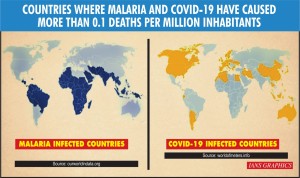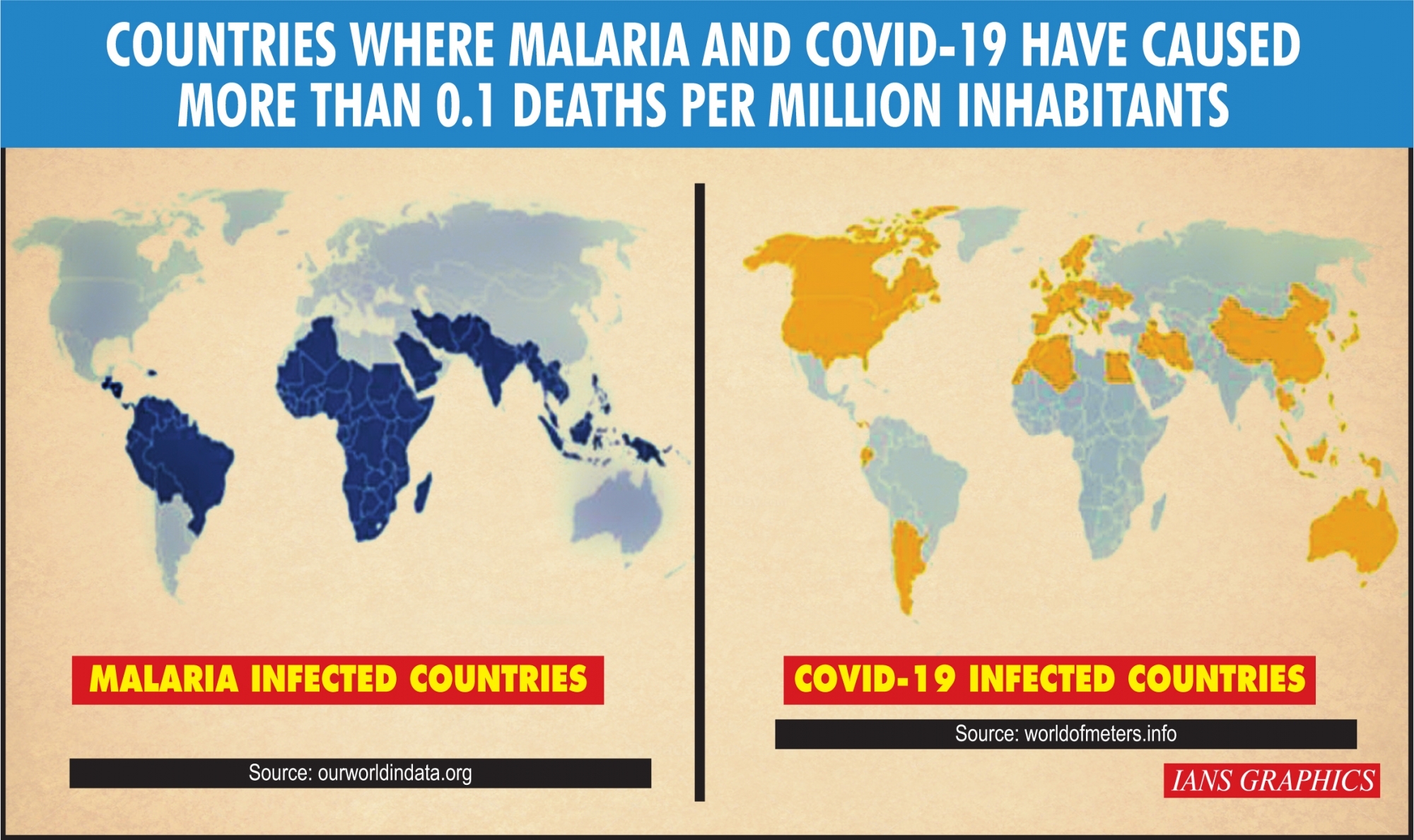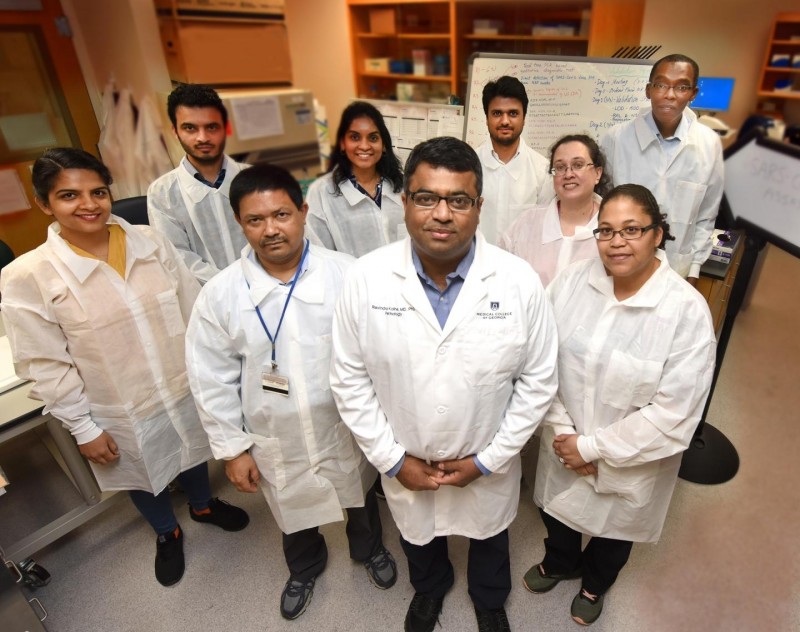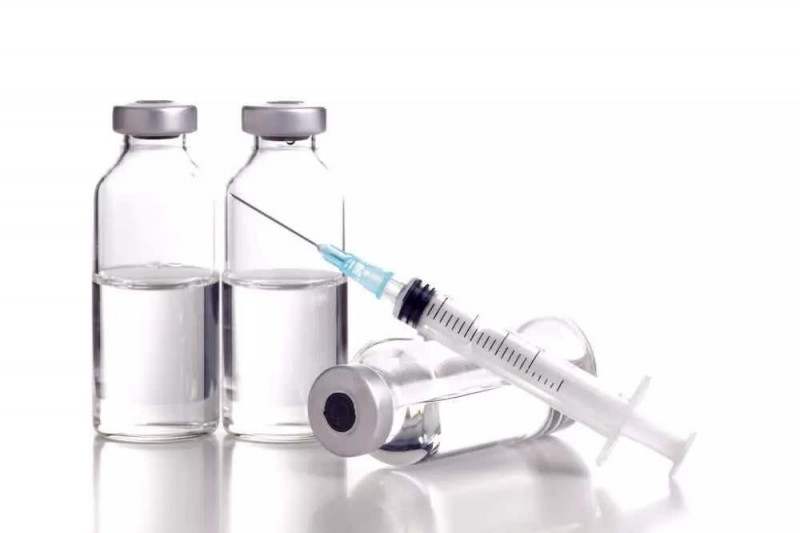There is no evidence to suggest that countries with malaria are at lower risk of getting new coronavirus cases, nor has it been proved that people living in these countries have developed any ‘herd immunity’ against the disease, health experts have stressed.

One theory doing the rounds on some media platforms is that coronavirus cases and fatality rates have been relatively lower in Asian and African countries that have higher malaria burden.
Moreover, some anti-malarial compounds have shown promise in fighting COVID-19 in experiments, leading some people to say that people in countries with malaria might have ‘herd immunity’ against COVID-19.
By analysing COVID-19 cases reported by countries across the world as well as the incidence of malaria cases as of 2017, a former NASA scientist wrote in his personal blog last week that the results suggested that “those countries with malaria have virtually no COVID-19 cases, and those countries with many COVID-19 cases have little to no malaria”.
The findings were based on the total number of COVID-19 cases as of March 17, 2020 as tallied by the WHO, Roy Spencer wrote in the blog published at www.drroyspencer.com.
Doctors in India, however, said that the country is no less vulnerable to COVID-19 because the malaria burden is high in the country.
“This is not true at all. India is a prime example as it is a malaria endemic country. It is just that our entry into this pandemic is slightly late. Additionally we have only tested 25,000 samples till date,” Rajesh Gupta, Additional Director, Pulmonology and Critical Care, Fortis Hospital Noida, told IANS.
India has so far reported over 700 coronavirus positive cases.
“In the next month or so, the cases will peak. Now in the coming months, we will begin testing a lot and then we will find out the extent of the infection spread. Ultimately, COVID-19 will be dealt with herd immunity only. But no, there is no evidence that people in malaria-infected countries have already developed herd immunity,” Gupta elaborated.
The WHO has urged countries to ensure the continuity of malaria services in the context of the COVID-19 pandemic.
“Do not scale back your planned malaria prevention, diagnostic and treatment activities. If someone living in a place with malaria develops a fever, he or she should seek diagnosis and care as soon as possible,” Pedro Alonso, Director of the WHO Global Malaria Programme, said in a statement on Wednesday.
Ensuring access to core malaria prevention measures is an important strategy for reducing the strain on health systems; these include vector control measures, such as insecticide-treated nets and indoor residual spraying, as well as chemoprevention for pregnant women and young children (intermittent preventive treatment in pregnancy, intermittent preventive treatment in infants and seasonal malaria chemoprevention), the WHO said.
Additional special measures could ease the burden on health systems in the context of COVID-19, such as presumptive malaria treatment and mass drug administration, it added.
In the WHO African region, a cumulative total of 1,716 confirmed cases have been reported across 38 countries in the region as of March 25.
“Whether population in counties where malaria is endemic has some herd immunity due to usage of chloroquine in their communities is a million dollar question. It requires detailed scientific population studies to arrive at such a conclusion,” said R.K. Singhal, Principal Consultant & Director and Coordinator of Medical & Allied Services, BLK Super Speciality Hospital, New Delhi.
The doctors also cautioned against use and hoarding of anti-malarial drugs for preventing coronavirus by the general population.
“Several countries in Asia and Africa are indeed malaria prone but it cannot be said, in the absence of adequate empirical evidence or trials, that anti-malaria drugs such as hydroxychloroquine and chloroquine can treat Covid-19,” said Charu Goel Sachdeva, Head of Internal Medicine, Manipal Hospitals Dwarka, New Delhi.
“In these countries also cases of Covid-19 are rising and they are also adopting quarantine, social distancing, and lockdowns measures,” she said, adding that more studies and trials are needed to conclude that anti-malarial drugs can help in treating this infection.
“Some trials were done in France, but it is still inconclusive and we need a very large number population for trial,” Sachdeva added.
Experts have warned that these anti-malarial drugs have several side effects and can lead to cardiac arrest, irritation and other problems.
“The general public should avoid taking it as a precautionary medicine as that would lead to a shortage of this drug for those who require it the most. The best we can do is maintain social distancing, wash our hands frequently as there is no vaccine and drug for COVID-19 yet,” Sachdeva told IANS.









